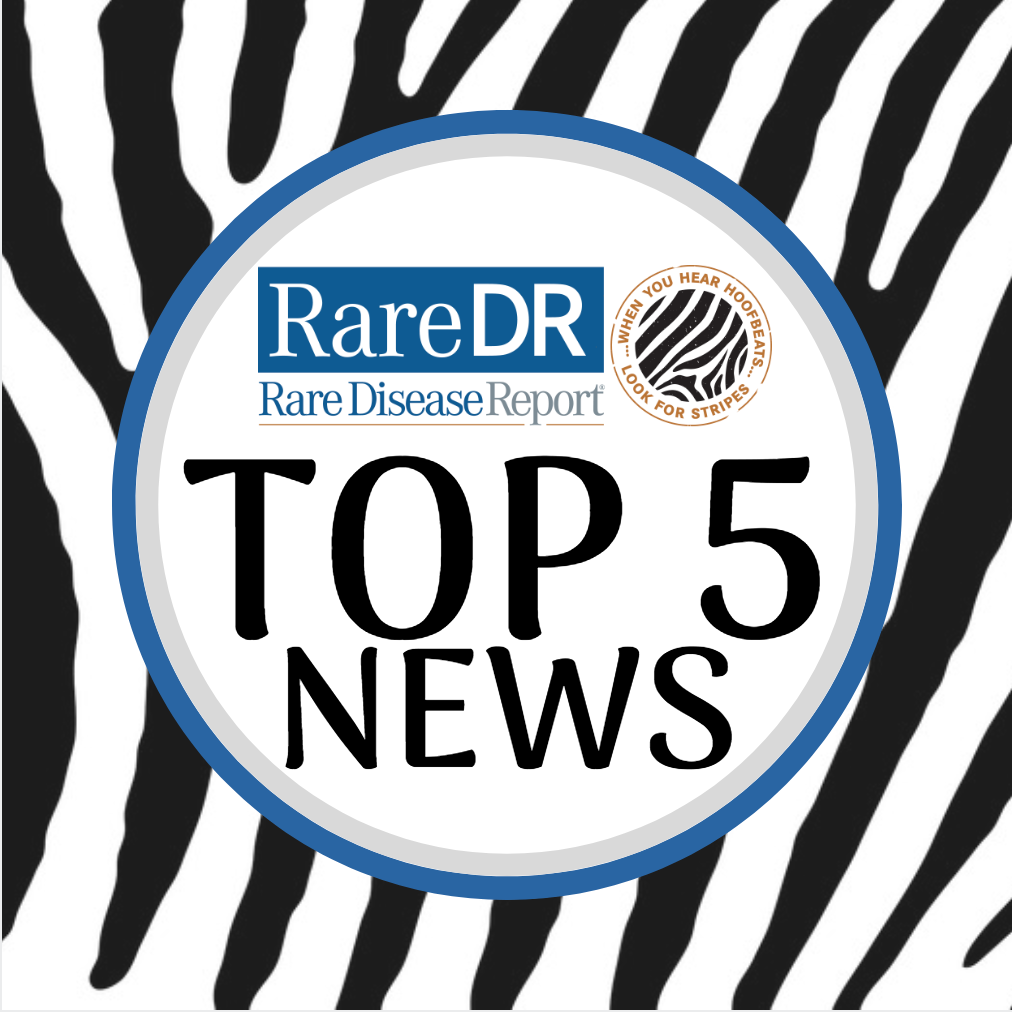Article
Top 5 Rare Disease News of the Week—June 24, 2018
Author(s):
Stay up-to-date on the latest rare disease news by reading the top 5 articles of the week.

#5: Phase 3 Trial Evaluating Voxelotor for Sickle Cell Disease Boasts Positive Top-Line Data
Positive top-line data from Part A of Global Blood Therapeutics, Inc.’s phase 3 HOPE (Hemoglobin Oxygen Affinity Modulation to Inhibit HbS PolymErization) trial evaluating voxelotor for the treatment of sickle cell disease (SCD) were released.
Results showed a statistically significant increase in hemoglobin in those who received voxelotor in either 1500 mg or 900 mg doses after 12 weeks of treatment compared with placebo.
#4: Updated Data Released Regarding Use of Edasalonexent in DMD Patients
Read more about the sickle cell disease treatment. Released data from the MoveDMD phase 2, open-label, extension trial assessing edasalonexent in boys diagnosed with Duchenne muscular dystrophy (DMD) were announced.
The investigators noted a significant decrease in CRP with edasalonexent treatment, which further supports the biological activity of NF-kB inhibition by treatment with the drug decreasing inflammation. Furthermore, compared with the rate of change in the off-treatment control period, edasalonexent substantially slowed DMD disease progression in boys on 100 mg/kg through more than a year of treatment.
#3: FDA Grants Priority Review to Waldenstrom's Macroglobulinemia Combination Therapy
Read more about the MoveDMD trial. The US Food and Drug Administration (FDA) granted Priority Review for a supplemental New Drug Application (sNDA) for the Waldenström's macroglobulinemia combination therapy, ibrutinib (IMBRUVICA) in combination with rituximab (RITUXAN).
#2: FDA Approves Cannabidiol for Lennox-Gastaut Syndrome and Dravet Syndrome
Read more about the new Waldenstrom's macroglobulinemia treatment.The FDA approved cannabidiol (Epidiolex) [CBD] oral solution in patients aged 2 years and older for the treatment of severe and rare types of epilepsy, Lennox-Gastaut syndrome and Dravet syndrome.
CBD, more commonly known as marijuana, is a chemical component of the cannabis sativa plant. However, intoxication or euphoria (the “high”) that comes from tetrahydrocannabinol (THC), which is the primary psychoactive component of marijuana. This was the first-approved marijuana-derived medication.
#1: Dr Takami Sato Discusses IMCgp100 Treatment for Metastatic Uveal Melanoma
Read more about the newly approved Lennox-Gastaut Syndrome and Dravet Syndrome treatment.In a recent interview with Rare Disease Report®, Takami Sato, MD, PhD, from the department of Medical Oncology at Kimmel Cancer Center, Thomas Jefferson University, discussed the use of IMCgp100 as a treatment for metastatic uveal melanoma (mUM).
IMCgp100 is a bispecific biologic comprised of a soluble T-cell receptor recognizing the gp100 antigen fused to a scFV anti-CD3 that redirects T-cell lysis of melanoma cells expressing gp100, in mUM. The estimated primary completion date for its phase 1/2 study is September 2019.
Read more about the metastatic uveal melanoma (mUM) treatment.




